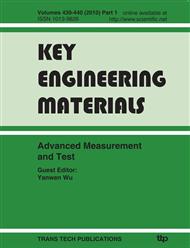p.481
p.486
p.493
p.499
p.505
p.510
p.516
p.522
p.528
An Embedded Multi-Phase Tactic of Scheduling Autoimmunization for Complex Correlated Production System
Abstract:
The schedule for job shop system involving the complex correlated constraints is a complex combinatorial optimization problem, for which currently there is no a methodology claiming to have capability to find the optimum solution. Current research concentrate on the search of acceptable feasible solutions. This research proposes an embedded multi-phase methodology to find the acceptable feasible solutions in a higher efficiency. The thinking of the methodology is to decompose the complex optimization problem into two sub problems of the operation sequence and the machine allocation to lower the complexity of the scheduling system and improve the searching efficiency. The two sub problems are solved orderly respectively, and the results of the first sub problem are embedded into the second sub problem as the original values of design variables. Thus these two sub optimization problems are integrated into a searching loop to ensure the feasibility of solution and improve the searching efficiency in the complex correlated system.
Info:
Periodical:
Pages:
505-509
Citation:
Online since:
June 2010
Authors:
Price:
Сopyright:
© 2010 Trans Tech Publications Ltd. All Rights Reserved
Share:
Citation:


